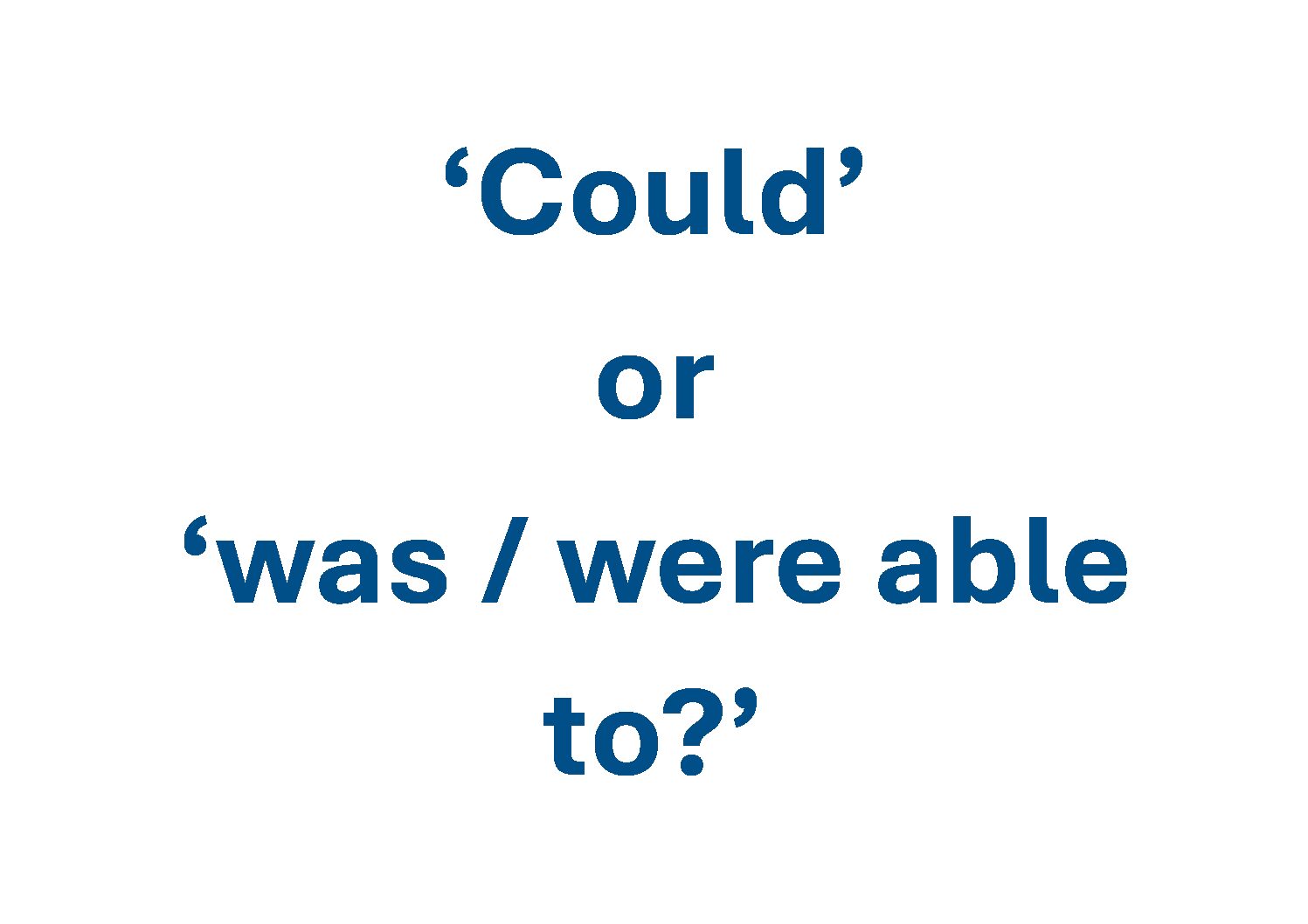The Great Debate: Could/Couldn’t vs. Was/Wasn’t Able To
English grammar can feel a bit tricky at times, especially when you’re deciding whether to use could/couldn’t or was/wasn’t able to to talk about the past. But don’t worry! Today, we’ll look at these phrases step by step, so you can understand when and how to use them. And to keep things fun, we’ll add a little light humor to help you remember.
1. The Basics: Talking About General Abilities
We use could and couldn’t to talk about what was generally possible—or not possible—in the past. These words are perfect for describing abilities you had over a period of time.
- Example 1:
“When I was a child, I could climb trees very quickly.”
Meaning: In general, climbing trees was easy for me in the past. - Example 2:
“She couldn’t swim until she was ten years old.”
Meaning: For a period of time in her childhood, swimming was not something she could do.
Notice that could doesn’t describe one specific moment. It tells us about something you were able to do repeatedly or over a long time.
2. When to Use Was/Wasn’t Able To
Now, let’s talk about was/wasn’t able to. This phrase is used for specific actions or events in the past where someone succeeded (or failed) at doing something.
- Example 1:
“Yesterday, we were able to catch the train even though we were running late.”
Meaning: In this specific situation, we successfully caught the train. - Example 2:
“I wasn’t able to open the jar, so I asked for help.”
Meaning: At that particular time, I tried but didn’t succeed in opening the jar.
Think of it this way: was/wasn’t able to focuses on specific actions or moments, while could/couldn’t talks about general ability.
3. Can You Use Both? Sometimes, Yes—But the Meaning Changes
In some situations, both could and was able to are possible. However, they may feel slightly different.
- Example 1:
“I could see the mountains from my hotel room.”
Meaning: Seeing the mountains was generally possible from my room. - Example 2:
“I was able to see the mountains from my hotel room.”
Meaning: In this specific situation, I managed to see the mountains (perhaps by standing on a chair or looking very carefully).
The first example describes a general situation, while the second suggests that some effort or achievement was involved.
4. Negative Forms: Couldn’t vs. Wasn’t Able To
When it comes to talking about things that weren’t possible in the past, both couldn’t and wasn’t able to can often be used. However, couldn’t is more common and sounds a little more casual.
- Example 1:
“I couldn’t lift the box because it was too heavy.”
Meaning: In general, I was not strong enough to lift the box. - Example 2:
“I wasn’t able to lift the box because it was too heavy.”
Meaning: At that specific moment, I tried but failed to lift the box.
Both sentences are correct, but wasn’t able to feels a little more formal or detailed.
5. When Could Doesn’t Work
Here’s a rule to remember: we don’t usually use could to describe specific successes in the past. For example:
- Incorrect:
“I could win the race yesterday.” - Correct:
“I was able to win the race yesterday.”
Why? Because could describes general abilities, not one-time achievements. To talk about specific events where you succeeded, always use was able to.
6. A Quick Summary
- Use could/couldn’t for general abilities or possibilities in the past:
- “I could read when I was five years old.”
(General ability over a period of time.)
- “I could read when I was five years old.”
- Use was/wasn’t able to for specific actions or events:
- “I was able to fix the computer yesterday.”
(A one-time achievement.)
- “I was able to fix the computer yesterday.”
7. Practice Time: Test Yourself!
Let’s practice. Which phrase is correct?
- “When I was a teenager, I ___ play the piano quite well.”
a) could
b) was able to
(Answer: could, because this is about a general ability.) - “Last night, I finally ___ find my lost keys.”
a) could
b) was able to
(Answer: was able to, because this is a specific moment in the past.)
Now you’re ready to use could/couldn’t and was/wasn’t able to like a pro! Just remember: could is for general abilities, and was able to is for specific successes or failures. Keep practicing, and soon you’ll be able to use these phrases with ease!
If you have enjoyed reading this blog, please ‘like’ it and share it with your friends and colleagues, and if you know anyone who might be interested in my online one-to-one lessons, please do ask them to contact me to discuss how I can help them to excel in English.

